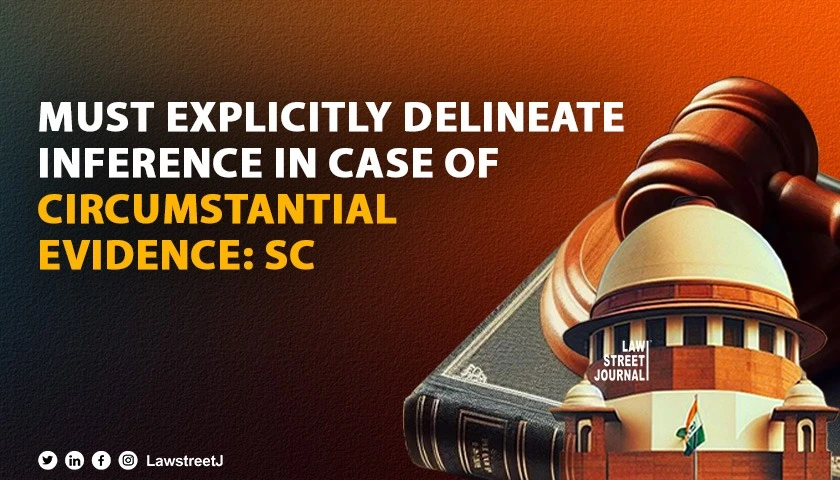NEW DELHI: The Supreme Court has said in a case based on circumstantial evidence, there is a need for the courts to explicitly delineate inferences drawn from the testimony of each witness before convicting the accused .
Confirming the conviction of appellant Abdul Nassar in a case of rape and murder of 9-year-old Madarssa student in Kerala in 2012, a three-judge bench headed by B R Gavai said the courts have undertaken an examination of the testimonies of the witnesses but has omitted to delineate the inferences derivable therefrom.
SC Highlights Importance of Explicit Inferences in Circumstantial Evidence Cases
"They (courts below) failed to expound upon how the prosecution has succeeded in constructing an
unbroken chain of circumstances that irrefutably establishes the
culpability of the accused to the exclusion of any other hypothesis," the bench, also comprising Justices K V Vishwanathan and Sandeep Mehta, said.
The bench concurred with the ultimate conclusions reached by the trial Court in 2013 and the Kerala High Court in 2018, convicting the appellant on the basis of recovery of blood stains clothes, and other materials, including matching of DNA profile of semens, 37 ante mortem injuries and the testimony of witnesses.
Supreme Court’s Guidelines on Evaluating Evidence for Convictions
The convict was awarded death penalty by the court below but he has expired during the pendency of appeal.
Taking up his appeal on a request of his family members, the bench said, "We cannot overlook the deficiencies in the methodology adopted by both the courts in the appraisal and analysis of the circumstantial evidence. The manner in which the evidence has been scrutinised lacks the depth and rigor expected, raising concerns about the adequacy of the evaluative process undertaken to arrive at the said decisions."
In the January 7, 2025 judgment authored by Justice Mehta on behalf of the bench, the court highlighted the principles that courts must adhere to while appreciating and evaluating evidence in cases based on circumstantial evidence.
The bench said the testimony of each prosecution and defence witness must be meticulously discussed and analysed. Each witness's evidence should be assessed in its entirety to ensure no material aspect is overlooked, it said.
"Circumstantial evidence is evidence that relies on an inference to connect it to a conclusion of fact. Thus, the reasonable inferences that can be drawn from the testimony of each witness
must be explicitly delineated," the bench said.
The court also said each of the links of incriminating circumstantial evidence should be meticulously examined so as to find out if each one of the circumstances is proved individually and whether collectively taken, they forge an unbroken chain consistent only with the hypothesis of the guilt of the accused and totally inconsistent with his innocence.
"The judgment must comprehensively elucidate the rationale for accepting or rejecting specific pieces of evidence, demonstrating how the conclusion was logically derived from the evidence. It should explicitly articulate how each piece of evidence contributes to the overall narrative of guilt," the bench said.
The court also said the judgment must reflect that the finding of guilt, if any, has been reached after a proper and careful evaluation of circumstances in order to determine whether they are compatible with any other reasonable hypothesis.
In the case, the bench examined the appeal on a request by the appellant's legal heir in order to wash off the stigma attached as he had died on January 16, 2024 during the pendency of the appeal.
The Court of Sessions Judge, Manjeri held the appellant guilty and awarded him death sentence. The Kerala High Court's division bench upheld the conviction and sentence.
Rejecting the appeal as lacking merit, the bench said, "The question of execution of death sentence
awarded to the appellant has been rendered otiose, considering the
fact that he has passed away. Thus, there remains no question of
dealing with the aspect of capital punishment awarded to the
appellant (since deceased)."















